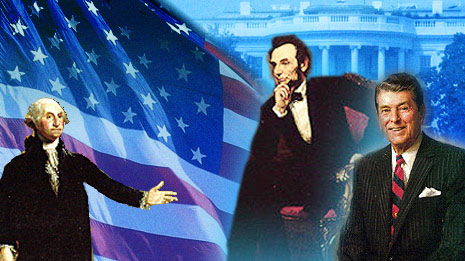Hot Science Topics Avoided by Presidential Candidates

You're wading knee-deep in science if you're following the presidential primaries this year, but in some cases, the candidates' positions are as clear as mud.
Stem cell research, climate change, alternative fuels and creationism versus evolution in public education are acknowledged by even some of the most marginalized candidates. More broadly, Hillary Clinton, John Edwards, John McCain and Barack Obama have directly criticized the current Bush Administration for its science policies, with accusations — based on numerous media reports — ranging from data distortion to research censorship. "I respect scientists and the scientific method, so I believe that policy should be science driven and that science shouldn't be politics driven," Edwards told LiveScience, in response to a question about federal funding for embryonic stem cell research, which he supports. While scientific topics thread through many of the politicians' platforms, "science isn't on the front burner" in the election campaign, according to a 10-page report by nine writers and editors in the Jan. 4 issue of the journal Science on the leading nine candidates' science views.
And when LiveScience queried all the candidates on three hot-button issues, only Edwards, Bill Richardson and Mike Gravel responded directly. Clinton has the most detailed statement of all the candidates on science policy, which includes her plan for a $50 billion research fund for green energy funded by federal taxes and royalties on oil companies. She also says she'll reinstitute the practice of calling the science advisor by the title of Assistant to the President (President Bush's science advisor John Marburger lacks that).
Like Clinton, Edwards says Americans should halt global warming, and also achieve energy independence, but he opposes expanding nuclear power. He supports carbon dioxide and other greenhouse gas emission caps to reduce emissions by 20 percent by 2020 and by at least 80 percent below 1990 levels by 2050. (Clinton and Obama support similar levels, while Bill Richardson pushes for a 90-percent reduction in U.S. greenhouse gas emissions by 2050 as well as a 50-percent cut in oil consumption by 2020.)
Creationism vs. Evolution
Edwards thinks local school boards should decide what is taught in their schools, but said, “I personally agree with the theory of evolution and believe it should be taught in our schools.”
Rudy Giuliani's campaign "successfully discouraged key advisors from speaking to Science about specific issues," according to the report. Giuliani still is sticking to his guns when it comes to abortion, defending a woman's right to choose. No word on what that means regarding stem cell research.
Sign up for the Live Science daily newsletter now
Get the world’s most fascinating discoveries delivered straight to your inbox.
Other candidates, including Mitt Romney, decidedly oppose embryonic stem cell research. McCain's position is more nuanced.
When it comes to responding to climate change, McCain puts that goal front and center, equating environmentalism with national security. But he has waffled on the teaching of evolution, telling the Arizona Daily Star that "there's nothing wrong with teaching different schools of thought [on] … how the world was created."
Mike Huckabee was one of the Republican candidates who raised his hand at a national candidates' debate to say that he didn't accept evolution, and he opposes embryonic stem cell research.
Like McCain and the Democratic candidates, Obama supports a strong response to climate change. And he wants to double federal spending on basic research and broaden Americans' access to the Internet (this goal also is strongly embraced by Edwards). Obama plans to fund $18 billion in education initiatives that would enhance math and science instruction by delaying NASA's program to return to the moon and explore Mars. (More on all the candidates' positions on space exploration is here.)
No comment
Fred Thompson has said nothing direct about science and technology issues, other than it makes sense to reduce carbon dioxide emissions.
Richardson proposes a more modest trust fund to support new energy technologies — $10 billion to $15 billion — than Clinton. He also stresses the hiring of 100,000 new math and science teachers and the creation of 250 math, science and innovation academies, though he misses the point that it's the states and local boards that run schools, not the feds, according to the Science report.
Romney is a bit of a cipher on some science policy, as he was gung-ho for stem cell research and embraced a regional plan to reduce carbon dioxide emissions at power plants as governor of Massachusetts, but now campaigns with references to his opposition to stem cell research and his doubts about the role of humans in global warming.
Nonetheless, Rep. Vernon Ehlers, a former physicist and current Republican member of the House Science Committee, told Science that Romney is the "best choice for any scientist or engineer," because the candidate "appreciates the benefits of science."
Robin Lloyd was a senior editor at Space.com and Live Science from 2007 to 2009. She holds a B.A. degree in sociology from Smith College and a Ph.D. and M.A. degree in sociology from the University of California at Santa Barbara. She is currently a freelance science writer based in New York City and a contributing editor at Scientific American, as well as an adjunct professor at New York University's Science, Health and Environmental Reporting Program.










